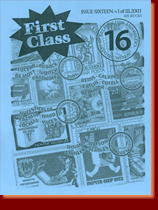


SAND
by Max Ruback
Somalia, Africa
A desert, waves of sand. Mild winds made a rain of the baking sand, which came at you from the ground up, pricking your skin, leaving dots of red burns. Soldiers stuffed cotton in their ears and nostrils. Sand got in everything; eyes, food, equipment. It kept helicopters grounded, machine gun triggers stuck, powdered eggs gritty, sand mites and cameramen everywhere. Even the soldiers had camcorders. Whatever it was they were doing here, it didn’t much feel like war, or a peace keeping mission, or whatever it was supposed to be. It sort of had the feeling of a home movie.
One night, he dreamt he was blind and walking through a sandstorm, sand filling his mouth and going down his throat. He struggled to breathe, began to choke, which was the point when he woke up, his heart beating fast, looking around the darkened tent, the taste of sand in his mouth. He had only been asleep for twenty minutes and was dying of thirst.
You couldn’t drink enough water. You walked around bloated. You were always thirsty. Always pissing.
In an early letter home, he wrote how beautiful the desert sky was at dusk, how he was friendly with a group of Somalian kids that were teaching him their language. In a way, to actually see the starving people made him appreciate the life he had back home, in the United States. He felt he was maturing, and that he had been doing a lot of thinking, and he regretted many things. But he didn’t include that. Or make mention of the sand, or the scorpions, or the feeling of being homesick, or the legless boy who was pulled around on a piece of cardboard by his mother. He was trying to be a man and men didn’t complain about such things to their mothers.
One day, he watched a bunch of Somalian kids literally fight over a pack of M&Ms. They did not want to share.
It started to wear on him, the starvation and the heat and the sand and the smell of garbage decomposing and burning, the sporadic gunfire. He stopped looking in his shoes for scorpions. Whatever happened, happened.
Poker helped. He played a lot of poker. The stakes got higher the longer they were there; from packs of Kool Aid to cigarettes to money to favors. Soldiers got a kick when a fellow soldier lost his shirt. He wasn’t a very good bluffer, but he just liked taking part in the games. A good game of poker could take your mind off anything, each and every soldier talking about something, anything, agreeing for the sake of agreeing and disagreeing for the sake of talking, laughing for its own sake.
There were good times. For instance, one day as the sun was setting, a group of soldiers got a football game together and played two hand touch until it was dark. Then they lit flares and stuck them in the ground and played a little longer. They did that for a couple of days, but then the football got stolen. Something was always being stolen. You couldn’t trust the Somalians, and you couldn’t trust other soldiers. The next day, they found another platoon with a football that resembled the one they had lost. A fight almost broke out between two soldiers who were looking to start something, but they had been pulled apart and told to calm down. Instead, the platoons played a game, winner take ball. They planted machine guns in the ground to mark the endzones. The game started in the fashion of two hand touch, but after about ten minutes they changed to playing tackle. He got in the game after another soldier pulled his hamstring. He caught a pass and got hit hard, got sand in his mouth. He called the soldier an asshole.
“You say something?” the soldier said.
He walked back to the huddle.
“You say something?” The soldier got in his face. “You afraid to say something now, little man? I am the meanest motherfucker you will ever know. You don’t want to get in the way of my shit. I will tear your head off and shit down your neck.” He beat on his chest like a gorilla.
The soldiers were always trying to act crazy or deranged in some way, looking for a reputation, a nickname. He tried to ignore him.
Soldiers sat on a tank and watched, laughing, egging the violence on. A group of Somalians became spectators, knowing this wasn’t the kind of game they were wanted in. So they chose sides, clapping their hands when someone scored. Somalian women poured water from plastic jugs over the bodies of the soldiers to get the sand out of their cuts and replenish their fluids. Shouting kids tackled one another. Heatstroke caused players to quit, but the game continued. Tired players were replaced by soldiers wanting to get some aggression out. Nobody kept score. Jets screamed across the sky. Fights broke out, but the game kept going. A soldier suffered a compound fracture, but the game did not end there, even though it was a blowout. It wasn’t about the score anymore. One soldier lost some teeth. A few got bloody noses.
Just before sunset, a wind blew whisps of sand into the air. A Somalian woman, tucking her baby’s face under her breast, began singing. The others followed. Then gathered their children, and within minutes a sandstorm came and the soldiers headed back to camp. The women lead, their children singing along.
edgar degas: four dancers, 1899
by Gerald Locklin
why are these dancers
outside in the woods?
and why have haystacks
been imported from monet?
not to mention, a blazing
tuscan twilight?
why are they fiddling
with their shoulder straps?
oh my god, i think that they’re
about to lower their bodices,
cavort bare-breasted,
at the very least,
in the sacred groves of unspoiled nature.
a suspicion arises that we are in
the presence of an allegory.
well, piss on that – i think i’ve heard
that tune one time too often.
i want real women,
real tits,
and if i can’t be there to join the dance,
then, please, i want them facing me.